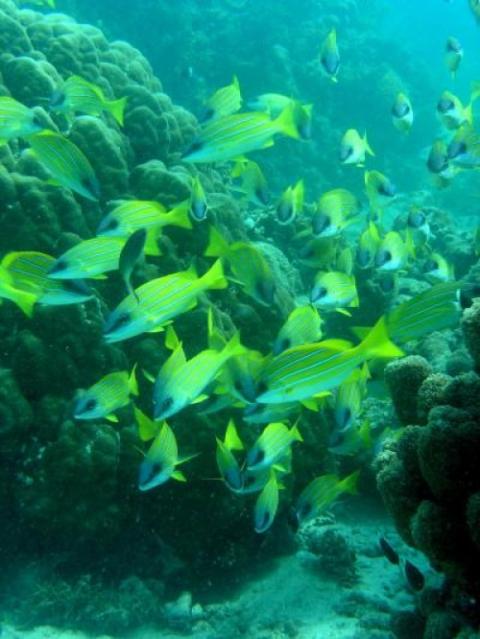
A new study reports that an expansion of marine protected areas is needed to protect fish species that perform key ecological functions. According to investigators, previous efforts at protecting fish have focused on saving the largest numbers of species, often at the expense of those species that provide key and difficult-to-replace ecological functions.
Many vital ecological functions of ocean ecology are performed by fish species that also are food for millions of people. This study uncovers a significant problem: the world's most ecologically valuable fish communities are currently vulnerable and are being missed by the world's current network of marine protected areas.
If these tropical fish populations and the ecological services that they provide are to be ensured, say the authors, then the world's existing marine protected area network must be expanded. The paper appears in the current online edition of Ecology Letters.
"The recognition that all species are not the same and that some play more important and different roles in ocean ecology prompted this new investigation. The study was expected to identify regions with vulnerable fish populations, something that has been sidetracked by the past species richness focus," said Dr. Tim McClanahan, WCS Senior Conservationist and a co-author of the study.
"If you lose species with key functions, then you undermine the ability of the ocean to provide food and other ecological services, which is a wake up call to protect these vulnerable species and locations. Our analysis identifies these gaps and should provide the basis to accelerate the protection of ocean functions."
For more information on this important issue, please click here.
